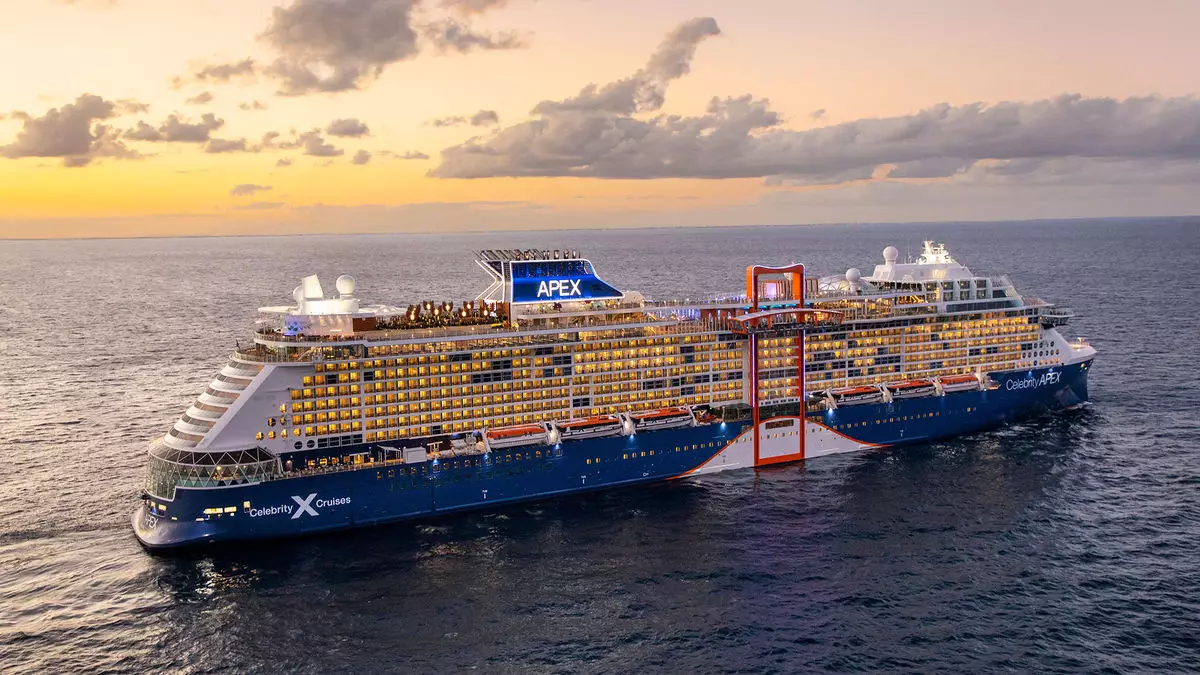As a beacon of quality in the luxury travel sector, Forbes Travel Guide has decided to embark on an exciting new journey by entering the cruise industry. Traditionally known for its meticulous evaluations of hotels, restaurants, and spas, the company has started reviewing cruise ships—a significant leap into a sector that is often viewed through a different lens of hospitality. This expansion reflects a growing eagerness among travelers for more comprehensive insights into the cruise experience, particularly in the realm of dining, which has consistently been a pivotal aspect of any voyage.
Following the initial review of five cruise ships in 2023, the guide quickly ramped up its efforts, evaluating a dozen vessels the subsequent year. This year, however, the focus intensifies as Forbes Travel Guide turns its gaze towards the onboard culinary offerings. The announcement of six star-rated specialty dining establishments will place cruise ship restaurants on the same esteemed list as their land-based counterparts. Furthermore, a total of 14 ships will be recognized, four of which are making their debut in this grading system. This marks a pivotal moment wherein the cruise industry, often eclipsed by traditional dining venues, receives the recognition it deserves.
The cruise industry’s intersection with Forbes Travel Guide is not merely a strategic decision; it reflects a broader trend of increasing interest and investment in cruise travel as a mainstream vacation choice. Amanda Frasier, the president of standards and ratings for the guide, mentions that this venture into the cruise sector stems partly from luxury hotel executives transitioning to cruise brands. The synergy is clear: as hotel companies construct their own themed ships, the expectation for high-quality service and excellence rises, prompting a demand for consistent assessment.
Moreover, this venture is solidified by a crucial commitment to impartiality. Frasier affirms that cruise lines are unable to pay for evaluations, ensuring true objectivity in the reviews. The anonymous assessment process, coupled with a standardized rubric, instills confidence in the ratings provided, allowing travelers and advisors to differentiate quality amidst a sometimes-overwhelming array of cruise offerings.
One of the most compelling aspects of Forbes’ new crusade into cruise dining ratings is the inherent challenges associated with serving high-quality food at sea. Frasier indicates a tangible concern among cruise operators regarding the ability to uphold the culinary standards found in traditional restaurants. Factors such as kitchen space limitations and the logistics of food storage on ships contribute to these complexities.
Nonetheless, cruise lines are intent on overcoming these obstacles. High-profile culinary collaborations have emerged on several cruise ships, with many lines featuring restaurants helmed by celebrity chefs and innovative culinary teams. Menus are often thoughtfully crafted to resonate with the regions the ships visit, creating a unique culinary journey that dovetails with the travel experience itself. This gastronomic focus emphasizes that modern cruisers are not just looking for a mode of transportation, but a culinary adventure.
Insights into Traveler Preferences
Consumer research underscores the importance of dining as a primary motivation for cruise travelers. Jay Schneider, the chief product innovation officer at Royal Caribbean International, indicates that after destinations, dining experiences significantly influence a traveler’s choice to set sail. This sentiment aligns well with Forbes Travel Guide’s mission, highlighting their emphasis on culinary excellence as they rate dining establishments on vessels.
The guide’s focus on cruise dining could indeed reshape traveler expectations and influence the competition among cruise lines. With more comprehensive ratings now available, potential cruisers will be better equipped to make informed choices about their experiences at sea—one where fine dining is as much a part of the journey as the destinations themselves.
Forbes Travel Guide’s foray into the cruise industry signifies a notable shift in how cruising is perceived. By prioritizing onboard dining and fostering a culture of excellence synonymous with their brand, they are setting an important standard for the industry. With a growing number of rated ships and restaurant offerings, the future looks promising for cruise enthusiasts eager for an enriching culinary experience while navigating the high seas. The evolution of cruise dining evaluation may very well redefine luxury travel, creating a new wave of expectations and aspirations among travelers worldwide.


Leave a Reply